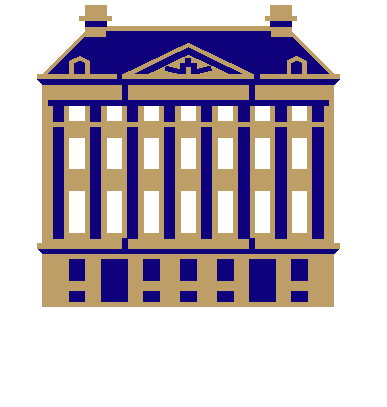IntEx
Integrated Planning, Acting and Execution
An ICAPS 2018 Workshop
Delft, The Netherlands
June 25, 2018
Automated planners are increasingly being integrated into online execution systems. The integration may, for example, embed a domain-independent temporal planner in a manufacturing system (e.g., the Xerox printer application) or autonomous vehicles (e.g., a planetary rover or a underwater glider). The integration may resemble something more like a "planning stack" where an automated planner produces an activity or task plan that is further refined before being executed by a reactive controller (e.g., robotics). Or, the integration may be a domain-specific policy that maps states to actions (e.g., reinforcement learning). Models for planning and execution can be integrated or distinct, the planning model can define context-dependent actions schema for on-line (re-)planning or can just specify flexibility to be handled separately at execution time. Online learning may or may not be involved, and may include adjusting or augmenting the model, determining when to repair versus replan, learning to switch policies, etc. A specific focus of these integrations involves online deliberation and execution management, bringing to the foreground concerns over how much computational effort planning should invest over time.
In any of these systems, a planner generates action sequences that are eventually dispatched to an executive, yet taking action in a dynamic world rarely proceeds according to plan. When planning assumptions are challenged during execution, it raises a number of interesting questions about how the system should respond and what is the scope of online deliberation versus execution. Is the "acting" side of the system responsible for a response or the "planning" side? Or do the two need to cooperate and how much? When should the activity planner abandon or preempt the current goals? Should the task planner repair a plan or replan from scratch? Should the executive adjust its current policy, switch to a new one, or learn a new policy from more relevant experience?
Objectives and Topics
Similar to IntEx 2017, the workshop aims to (1) provide a forum for discussing the challenges of integrating online planning, acting, and execution, and (2) to assess the potential for holding an integrated execution competitions at ICAPS. We seek original papers concentrating on the following topics:
- online planning, acting, and execution
- position papers, benchmarks, or challenge problems for integrated execution
- improving planning performance from execution experience
- anytime or incremental planning
- discussions of plan dispatching or plan executives
- execution monitoring; comparing replanning, plan repair, regoaling, plan merging
- managing open worlds with closed-world planners; model learning from experience
- determining an observation policy; policy switching; incremental policy adjustment
- modelling, languages and knowledge engineering for interleaved planning and execution
- architectures and application for integrated planning and execution, execution monitoring, mixed-initiative on-line re-planning and execution
Format
We plan a one day workshop with a focus on discussion. In contrast to the invited speaker form, we plan to host “opposing views” debates, where two members of the community will be encouraged to debate a topic relevant to the workshop in as creative a way as possible. Small-group breakouts after the debates will address questions raised by the debate so all participants gain from the experience.
Submission
Submissions may be regular papers (up to 8 pages plus references) or short position/challenge papers (up to 4 pages plus references). All papers should conform to the AAAI formatting guidelines and style (http://www.aaai.org/Publications/Author/author.php). The papers must be submitted in a PDF format via EasyChair system (https://easychair.org/conferences/?conf=intex2018). Submitted PDF papers should be anonymous for double-blind reviewing. They will be reviewed by at least two referees.
We welcome existing publications from other venues that are appropriate for discussion at this workshop. Please note in the title area if this work is already accepted at another venue. If the work is under review at another venue (e.g., IJCAI-2018) please notify the organizers so we can avoid potential reviewing conflicts.
At least one author of each accepted paper must attend the workshop in order to present the paper. Authors must register for the ICAPS main conference in order to attend the workshop. There will be no separate workshop-only registration.
Important Dates
- Paper submission: April 6, 2018
- Notification of acceptance/rejection: April 20, 2018
- Camera-ready paper submissions: May 25, 2018
- Workshop date: June 25, 2018
Organizing Committee
- Tiago Vaquero, Jet Propulsion Laboratory, USA, vaquero@jpl.nasa.gov
- Mak Roberts, Naval Research Laboratory, USA, mark.roberts@nrl.navy.mil
- Sara Bernardini, Royal Holloway University, London, UK, sara.bernardini@rhul.ac.uk
- Tim Niemueller, RWTH Aachen University, Germany, niemueller@kbsg.rwth-aachen.de
- Simone Fratini, European Space Agency, Germany, simone.fratini@esa.int
Program Committee
- Ron Alford, MITRE Corporation, USA
- Michael Cashmore, King's College London, UK
- Jeremy Frank, NASA Ames, USA
- Nir Lipovetzky, University of Melbourne, Australia
- Dan Magazzeni, King’s College London, UK
- Fabio Mercorio, University of Milan–Bicocca, Italy
- Bob Morris, NASA Ames, USA
- Tiago Nogueira, European Space Agency, Germany
- Scott Sanner, University of Toronto, Canada
- Roni Stern, Ben Gurion University, Israel
- Vikas Shivashankar, Amazon Kiva, USA
- John Winder, UMBC, USA
Guest Speaker: Steve Chien, Jet Propulsion Laboratory, California Institute of Technology
Integrating Scheduling and Execution for a Planetary Rover
We first describe some of the practical challenges in embedding a scheduling in execution for a planetary rover. The scheduler design (incremental, batch, anytime) and performance is critical as well as performance requirements (such as response time). Is the scheduler invoked periodically (simpler to validate) or based on some interpretation of events or change? And these key decisions much be couched in the context of the other software processes running onboard and computational loading for the computation constrained environment. Additionally, what sort of flexible (or inflexible) execution model is used. Flexible execution can reduce demands on (re) scheduling but (a) can the scheduler generate schedules and ancillary information needed to support such flexibility and (b) can more powerful execution models meet response time guarantees. Additionally, for the scheduler itself – what techniques can fit within tight computational constraints yet meet mission requirements. Finally, for any real, deployed system - verification, validation, and testing are paramount. Usually a simpler (or easier to characterize) algorithm/system is preferable even if it produces inferior results due to testing and verification requirements.
This talk discusses the process and design of both scheduling and execution for a planetary rover, the M2020 rover scheduled for launch to Mars in 2020. We discuss the design spaces considered for execution, scheduling, and software prioritization as well as efforts to simulate and analyze these trades.
This talk describes work by the M2020 onboard scheduler team: J. Agrawal, E. Benowitz, J. Biehl W. Chi, S. Chien, E. Fosse, D. Gaines, S. Kuhn, G. Rabideau.
Bio
Dr. Steve Chien is a Senior Research Scientist at the Jet Propulsion Laboratory, California Institute of Technology where he leads efforts in autonomous systems for space exploration. Dr. Chien has received numerous awards for his work in space autonomous systems including: NASA Medals in 1997, 2000, 2007, and 2015; he is a four time honoree in the NASA Software of the Year competition (1999, 1999, 2005, 2011); and in 2011 he was awarded the inaugural AIAA Intelligent Systems Award. He has led the deployment of ground and flight AI software to numerous missions including the Autonomous Sciencecraft/Earth Observing One, WATCH/Mars Exploration Rovers, Earth Observing Sensorwebs, IPEX, and ESA’s Rosetta.


Program
Each talk during sessions 1-3 will be 25 minutes long (20 min presentation + 5 min Q&A).Integrating Scheduling and Execution for a Planetary Rover
Steve Chien, Jet Propulsion Laboratory, California Institute of Technology
Planning and Execution for Front Delineation and Tracking with Multiple Underwater Vehicles
Andrew Branch, Mar M. Flexas, Brian Claus, Andrew F. Thompson, Evan B. Clark, Yanwu Zhang, James C. Kinsey, Steve Chien, David M. Fratantoni, Brett Hobson, Brian Kieft and Francisco P. Chavez.
Task Monitoring and Rescheduling for Opportunity and Failure Management
José Carlos González Dorado, Manuela María Veloso, Fernando Fernández Rebollo and Angel García Olaya.
On Controllability of Temporal Networks: A Survey and Roadmap
Jeremy Frank.
Trade-offs Between Communication, Rescheduling, and Success Rate in Uncertain Multi-Agent Schedules
David Chu, Grace Diehl, Marina Knittel, Judy Lin, William Lloyd, James Boerkoel and Jeremy Frank.
Automated Adversary Emulation: A Case for Planning and Acting with Unknowns
Doug Miller, Ron Alford, Andy Applebaum, Henry Foster, Caleb Little and Blake Strom.
Integrated Planning and Execution for a Self-Reliant Mars Rover
Steve Schaffer, Joseph Russino, Vincent Wong, Heather Justice and Daniel Gaines.
CLIPS-based Execution for PDDL Planners
Tim Niemueller, Till Hofmann and Gerhard Lakemeyer.
Using Operational Models to Integrate Acting and Planning
Sunandita Patra, Malik Ghallab, Dana Nau and Paolo Traverso.
Knowledge Representation and Interactive Learning of Domain Knowledge for Human-Robot Interaction
Mohan Sridharan and Ben Meadows.












